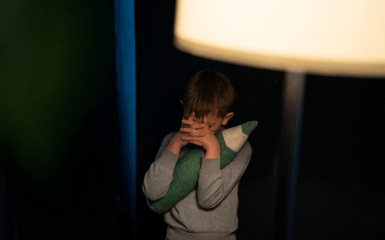The Security Service of Ukraine, the National Police and the Prosecutor General's Office have collected a large-scale evidence base regarding the abduction of at least 31 Ukrainian children from the temporarily occupied areas of Donetsk region to the Russian Federation.
Points of attention
- 31 Ukrainian children were abducted from Donetsk region to a boarding house in Russia, allegedly under Putin's administration.
- The leader of 'DPR', Pushylin, and his associates orchestrated the abduction, disguising it as a 'healthcare' mission to Russia.
- The suspects faced legal action for violating laws and customs of war, prompting international arrest warrants by the ICC.
- A documentary called 'Mutilated Childhood' sheds light on the traumatic experiences of abducted Ukrainian children and their families amidst the ongoing war.
- The story reveals the heartbreaking reality of children being separated from their parents, tortured, and sent to camps by the Russian forces in Ukraine.
The leader of the "DPR" Pushylin and his associates kidnapped Ukrainian children from Donetsk region
According to the investigation, after the start of the full-scale invasion of Russia, the children were taken to the boarding house "Polyany" in the suburbs of Moscow, which is subordinate to the administration of the affairs of the President of the Russian Federation.
Among the deportees are 16 boys and 15 girls, including three children from Mariupol, who were taken from their father, and he himself was sent to the Olenivska colony.
Nineteen orphans and children deprived of parental care were also taken out of Mariupol. Another nine children were abducted from social centers in Shakhtarsk and Khartsyzka.
The SBU documented that the order to abduct Ukrainian children from the occupied territories of the Donetsk region was issued by the head of the occupation administration, Denys Pushylin.
He signed "Resolution No. 84", which was disguised as the goal of "healthcare" for children in Russia. Execution of the order was entrusted to Eleonora Fedorenko and Svitlana Maiboroda, the head of the so-called "service for family and children of the DPR".
The children were first taken to Donetsk, then by bus to Rostov-on-Don, and from there by plane to Moscow, where they were placed in a boarding house run by the Putin administration. Some of the children were transferred to Russian families for "education", in particular one child — to the family of Maria Lvova-Belova, the Commissioner of the Russian Federation for Children's Rights.
The International Criminal Court previously issued arrest warrants for Putin and Lvova-Belova for the forced deportation of Ukrainian children to Russia.
On the basis of new evidence, the SBU investigators reported the suspicion of Pushylin, Fedorenko, and Maiboroda for violating the laws and customs of war, committed by a group of persons based on a prior conspiracy (Part 2 of Article 28 and Part 1 of Article 438 of the Criminal Code of Ukraine).
Russia kidnaps Ukrainian children
The Online.UA documentary "Mutilated Childhood" tells about Russia's abduction of Ukrainian children from the temporarily occupied territories of Ukraine.
The film contains real stories of children and their families who suffered from Russia's war against Ukraine, comments by leading scientists, psychologists, lawyers and experts on the protection of children's rights.
The heroes of the tape went through Russian captivity, torture, abduction to a health camp, some were separated from their parents during the so-called filtering measures.




